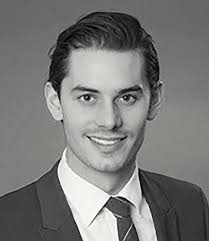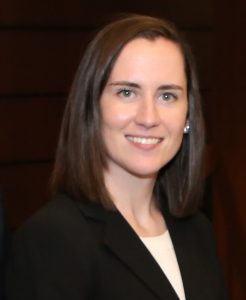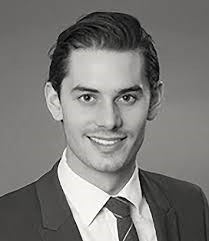Jimmy Theo is an intellectual property lawyer in Dinsmore & Shohl LLP’s Chicago office. Jimmy’s  practice focuses on trademark law—an area he studied at Loyola University of Chicago School of Law. Jimmy graduated from Loyola in 2015 where he was captain of the 2015 Civil Law Mock Trial Team, a liaison of the Copyright Society of the USA, and a research assistant for Professor Matthew Sag. Jimmy knew entering law school that Intellectual Property (IP) was for him. Well before law school, Jimmy was attracted to music and the arts. His interest in helping musicians and other artists protect their work led him to a career in IP, where among other practice areas, he currently advises on the management of global trademark portfolios.
practice focuses on trademark law—an area he studied at Loyola University of Chicago School of Law. Jimmy graduated from Loyola in 2015 where he was captain of the 2015 Civil Law Mock Trial Team, a liaison of the Copyright Society of the USA, and a research assistant for Professor Matthew Sag. Jimmy knew entering law school that Intellectual Property (IP) was for him. Well before law school, Jimmy was attracted to music and the arts. His interest in helping musicians and other artists protect their work led him to a career in IP, where among other practice areas, he currently advises on the management of global trademark portfolios.
Jimmy and I recently sat down to talk about his background, his legal career, and his best pieces of advice for current and prospective law students.
How did you become interested in intellectual property?
I knew when I entered law school that IP was for me. I was a musical person and an arts lover from a young age, so practicing in “soft” IP was an obvious choice considering I did not have a science or engineering background. My work as a journalist covering political stories before law school also made me want to protect the intangibles of that kind of labor, like the rights associated with publications, through a career in IP.
How did you end up in your current practice area at Dinsmore?
I started my legal career as an in-house attorney in the Legal Department of Encyclopedia Britannica and Merriam-Webster. I was there for about two years and had exposure to nearly every aspect of IP law. After that, I went to McDonald Hopkins—a firm that provides business law services. There, I handled trademark portfolio management, which meant that I counseled clients on strategies to protect their trademarks to strengthen their brand. I even worked on a portfolio for the world’s largest retailer—it was unbelievably cool to handle such a client that early in my career. From there, I came to Dinsmore with a group of attorneys looking for more resources to grow the expanding practice, and I’m now one of about one hundred IP attorneys at the firm. Dinsmore has a laid-back work environment, and the firm’s 700 attorneys all do fascinating work. It’s been a great place to grow.
What do you do on a day-to-day basis?
About eighty or ninety percent of my day is spent managing global trademark portfolios, which represent our clients’ trademark interests and rights all over the world. A lot of my international responsibilities are focused in East Asia and Canada, meaning I work closely with local attorneys in these countries to ensure our clients rights are maintained and enforced.
This means that I assist clients with everything from trademark clearance and filing (i.e. making sure you are not infringing the rights of others and seeking a registration of your own) to ensuring client’s trademark rights are not being infringed, enforcing the right to exclusive ownership, and licensing those rights when it makes sense to do so. For me, this also includes generally advising on trademark prosecution strategy, that is, what, when, and where to file. I also advise clients on expanding and adapting their brand protection to the e-commerce realm.
This often means I act as an intermediary between U.S. based clients and foreign markets, helping to oversee and manage the brands in these markets by interpreting and harmonizing the client’s wishes with local law and realities. Sometimes, this offers unique challenges. For operations in China and Vietnam—because of the vast time difference, I’ll sometimes have to jump on calls very early or very late. However, most of the time I come to work in the morning and see responses from my counterparts overseas that they spent their day crafting while I was home sleeping. It has a nice rhythm to it, and it’s a great excitement coming to work every day!
At Loyola, how did the extracurriculars you were involved in help you in your career?
The extracurriculars I took part in really expanded my network and friendships. For example, with Mock Trial, I developed strong ties to Loyola professors and coaches. In doing so, I became close to people in vastly different fields than IP. Some of my extracurricular involvement also came from my already-close ties with professors. For example, Dean Gaspardo (“Dean Jean”) asked me to be a student usher for the Lawyer’s Club of Chicago because we had a great relationship, and it indirectly led to my first legal job at Britannica!
The obvious highlight was going to China on a Comparative Law Study Abroad Program at the Beijing University of International Business and Economics. I went with Dean Jean and about twenty law school classmates. We were there for six weeks and took classes concerning Chinese law during the day, and ventured around the city eating spicy noodles and drinking Tsingtao at night. Those were some of the best experiences of my life, and I made a number of lifelong friends on that trip. I could not recommend it enough!
What was your favorite Intellectual Property class or extracurricular and why?
My favorite IP class was the copyright class that Professor Sag teaches. I was particularly interested in the case law that surrounds IP issues with music sampling and the payment of royalties. These were novel questions that are difficult to define, so there was a great deal of room to debate. Given how much I love music, and Professor Sag’s preeminence in the field, it made for some fascinating discussions.
Are there certain classes that you think would be helpful to a budding Intellectual Property lawyer?
There are three classes that come to mind I think were especially helpful to me. The first class I recommend is Loyola’s Trademark Law Seminar that Professor Norton teaches (this class requires the general IP Survey class as a pre-requisite). Second, a contract-dispute resolution class was very useful because the skills learned in such a course are applicable in all sorts of situations as a practicing attorney. Lastly, I recommend taking a class about transnational dispute jurisdiction. I took the class with Professor Waller and cannot say how helpful it was because I’m now working in many international jurisdictions each week.
What advice do you have for someone interested in Intellectual Property and without a science background?
My first piece of advice is to be persistent. The “aha moment” will come in terms of finding the perfect fit for you. Trademarks are an incredibly hot field, so while the soft IP network is relatively small in Chicago, it’s a very dynamic market. So, don’t back down—be annoying and bug people, force them to let you buy them a coffee. This helps to get your name out there within a field where being known is half the battle. I recommend keeping a list of IP attorneys whose names are mentioned by attorneys you already know. Soon enough the network will reveal itself to you.
My second piece of advice is to just get your foot in the door, whether at a firm, or in house as I started. Once you hit that two-to-five-year threshold in the legal workforce after graduating law school, your marketability options explode. So, gain any IP experience now and you will be a very desirable IP attorney with a few years under your belt.
For students interested in Intellectual Property but also open to other types of practice, what would you tell them about Intellectual Property?
I would praise how fun and interesting IP work can be. Also, especially if you’re involved internationally like I am, it offers a great perspective in to how interconnected the world really is, as well as the crossroads between business, the law, and strategy. IP work is not as “boom and bust” as litigation or Mergers and Acquisition work can be because brands are constantly looking to expand their influence.

Jackie McDonnell
Assistant Blogger
Loyola University Chicago School of Law, J.D. 2021
